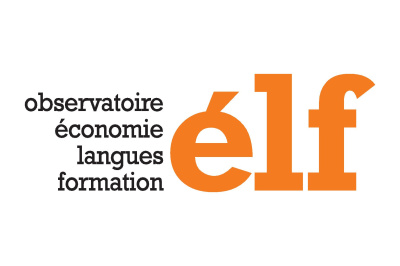Economics, Languages and Education Research Group

|
Français |
Deutsch |
Italiano |
English |
Esperanto |
A Research Domain at the Crossroads of Three Disciplines
The research field of the "Economics, Languages and Education" Research Group (Observatoire élf or simply “élf”) is centered on the notion of linguistic diversity. The management of linguistic diversity is one of the most pressing issues of modern societies.
Economics plays a major part in this enterprise for three reasons. First, economic processes influence the position and functions of different languages in society, for example through macro-level language dynamics. Second, languages influence economic activity in several ways — for example, foreign language skills can be seen as assets in which people may choose to invest. Third, the management of linguistic diversity requires the weighing of advantages and drawbacks of competing scenarios, whether in official language policies or in private-sector strategies
The management of linguistic diversity has a lot in common with other forms of public policy, because it is conducted through various channels, using a range of instruments. Among the latter, educational policy plays a major role, since much of the government intervention in linguistic diversity focuses on educational systems. Education is also the means most used by individuals and firms to meet the various challenges raised by diversity in society.
Economics, languages and education are connected in a number of ways. These links are gaining in relevance, as a result of the increasing visibility of linguistic diversity in modern societies; élf has been created in order to make contributions to the study of these complex and multifaceted processes.
Mission and structure
The Observatoire élf began its activities in the autumn of 2003, with financial support from the Rectorate of the University of Geneva. Its chief mission is to offer contributions to research and teaching on the interrelations between the economy, languages and education. A particular emphasis is placed on developing tools for the management of linguistic diversity. In the long run, élf aims to be recognized as a resource and a centre of competence in the management of linguistic diversity.
The issues studied at the Observatoire élf necessarily require researchers to draw upon several disciplines in the social sciences and humanities, and élf's work aims to develop expertise in the design and implementation of interdisciplinary approaches to diversity. It also seeks to serve as a contact point between Geneva's Faculty of Translation and Interpreting (FTI), other faculties within the university, and institutes affiliated with the university.
The Observatoire élf is also designed to take part in in the academic developments taking place under the general label of "Genève internationale".
As of early 2025, four scholars are working at the Observatoire élf; four non-resident scholars are affiliated as fellows. The Observatoire can also host visiting scholars for limited periods of time as part of specific research projects. Finally, élf members maintain regular contact with other researchers and colleagues around the world.
Activties
The Observatoire élf receives no funding of its own, beyond one part-time research position. It is not a funding body; rather, it aims to acquire funds in order to carry out research projects (see details under the “Research” tab). It is also active I in the following areas:
- providing expertise in diversity management, with particular emphasis on the selection, design and evaluation of language policies and cultural policies;
- organising scientific meetings and seminars, and actively taking part in international conferences in relevant research areas;
- engaging in regular cooperation with other specialists through common projects, joint publications or work visits;
- developing (or supporting the development of) project proposals for interdisciplinary instruction in linguistic diversity management, both in Geneva and in the wider Lake Geneva region.
